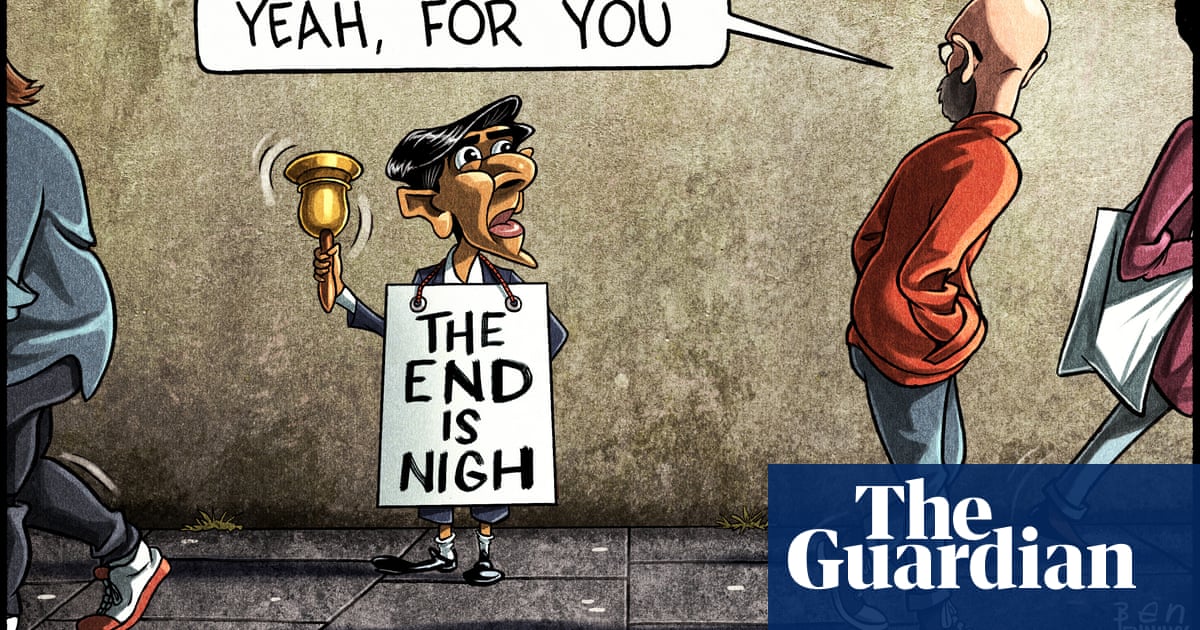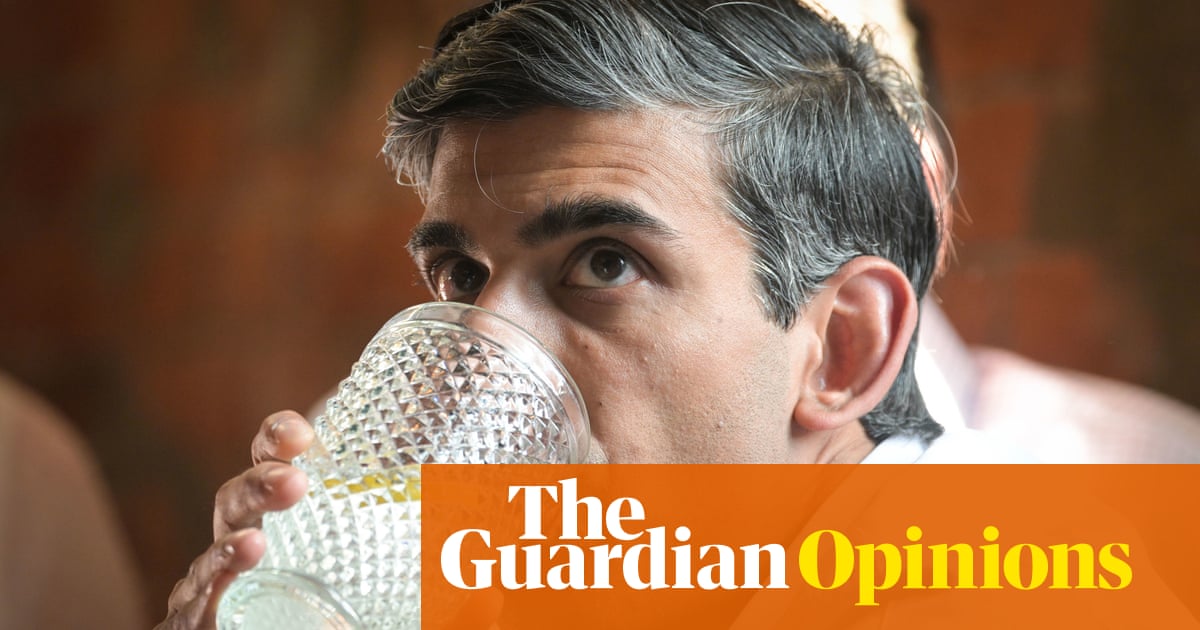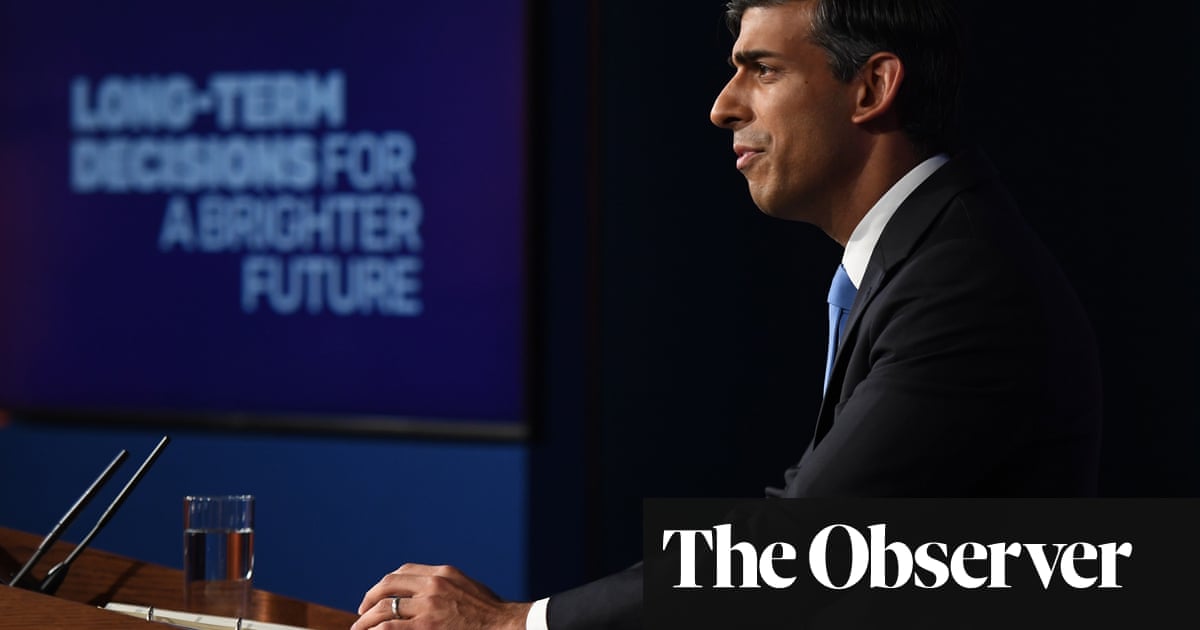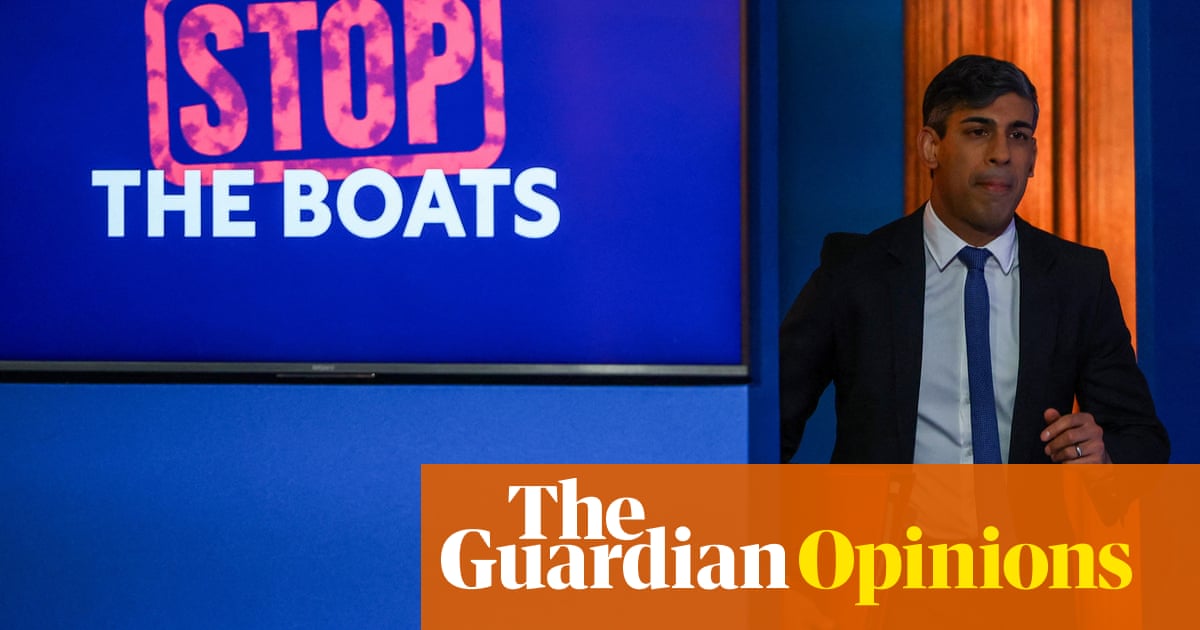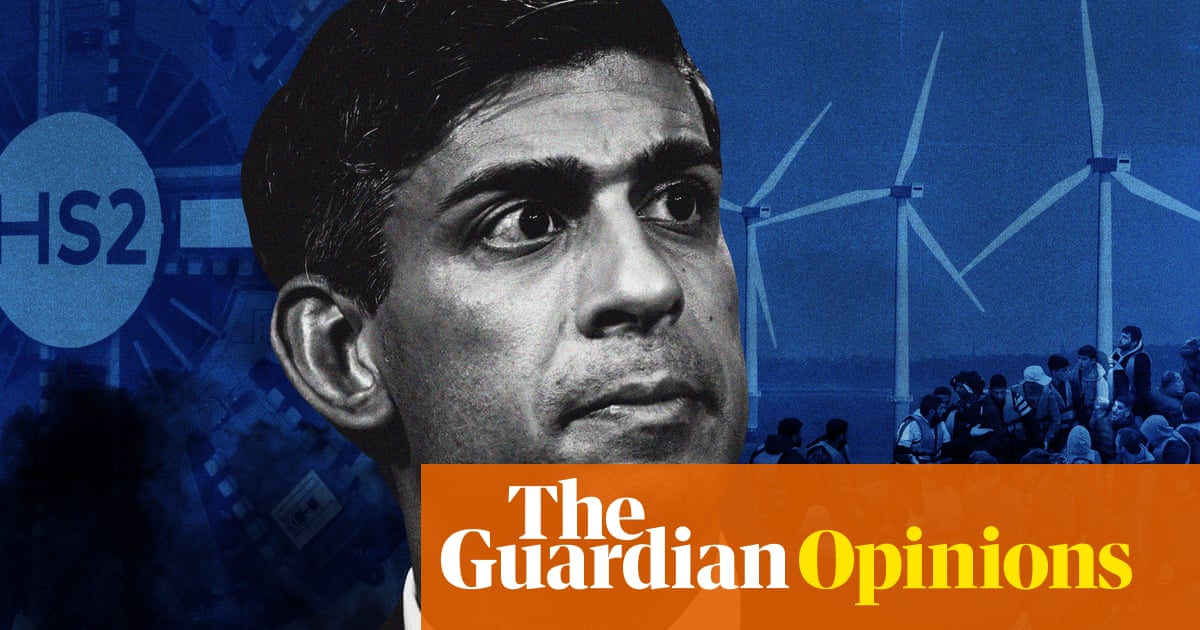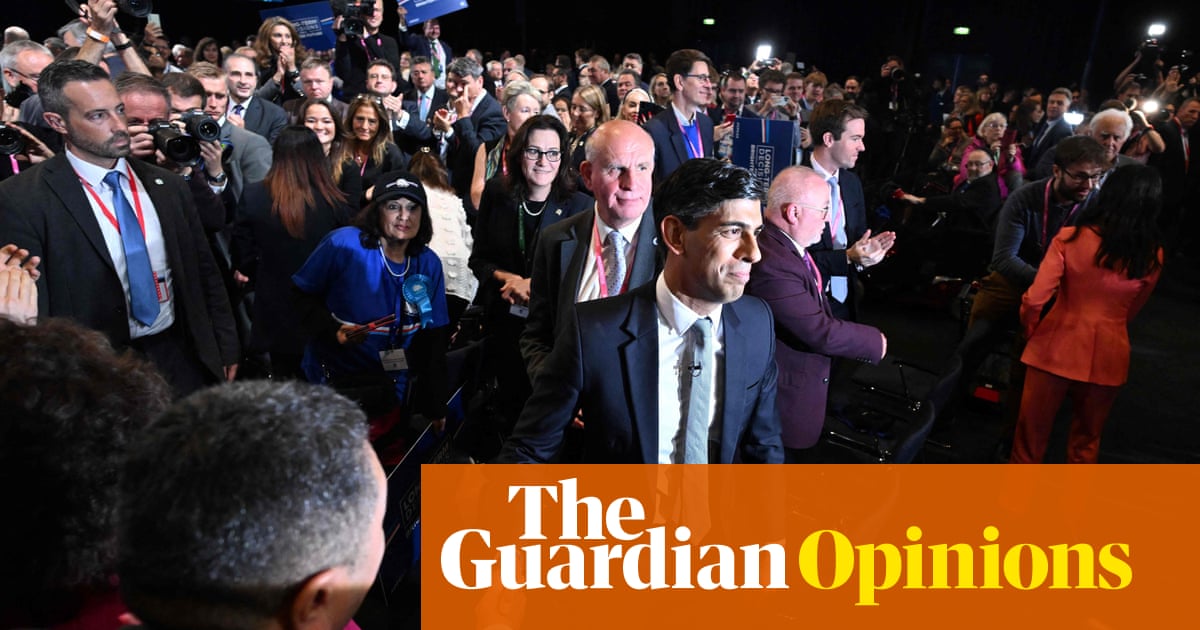
Rishi Sunak has spent Conservative party conference week claiming he wants to do politics differently. If only. In fact, yesterday’s speech – quite possibly the only one he will ever give to a Tory conference as leader – was politics as usual. A series of policy announcements delivered from on high, some expected and others not, framed by an attack on Labour, made it the sort of speech that Tory prime ministers make on such occasions. But it was delivered to an audience and a party that know he may not be around to implement any of them.
True, it was the best-constructed and best-delivered conference speech by a Conservative prime minister since David Cameron. That may not be saying very much, given that the competition consists of spluttering Theresa May, blustering Boris Johnson and a self-destroying Liz Truss. But at least it had a theme running right through it. The theme was an attempt to redefine the party of government for the past 13 years as the party of change. The problem is that this is a trick, and not a good one, and Sunak isn’t the leader to pull it off anyway. It was his cones hotline moment. The audience could have greeted his speech with a chant of “One more year! One more year!”
Sunak’s real problem, though, is that he does not do politics well. Politics was broken, he said. That’s true. But this was not the speech to change that. Not after 13 years and after two traumatic lurches rightwards in the form of the Brexit vote and the Truss disaster. Doing politics differently could mean focusing on the long term, working with other parties, reforming the way parliament works and changing the electoral system. But Sunak’s approach is prescriptive, not creative. It is indistinguishable from gimmickry. A few eye-catching announcements – and there were some – don’t alter that.
It didn’t help, of course, that the biggest headline from the speech will be the one that everyone knew was coming, and which embodies as few others could have done the widespread feeling in Britain that the country isn’t working. Scrapping the northern leg of HS2 is a humiliation for the government, for the politicians, for the companies involved and, above all, for the nation. The failure to complete one single line of the kind that France was able to roll out nationwide more than three decades ago is a devastating verdict. Nothing Sunak can say gets round the failure that blankets what he said – and in Manchester of all places. There is no credit to be won from being a zombie government in charge of a ghost train.
There is no disguising either that the cancellation is a volte face on the levelling-up conceit, which, fraudulent or not, was undoubtedly at the “Get Brexit done” heart of Boris Johnson’s successful national agenda in 2019.
It is hard to dispute Greater Manchester mayor Andy Burnham’s verdict that the north has been treated as a “second-class” part of Britain, especially with Sunak’s confirmation, which rubbed salt in the wound, that HS2 will terminate at Euston, as it should, not at Old Oak Common. But it should have gone to Manchester and Leeds, too. The north has been betrayed. So has the Midlands. The West Midlands’ Conservative mayor, Andy Street, who fought for the project to the last, would be right to resign. He could win re-election standing as the independent that he actually is.
The humiliation is reinforced by the fact that the promise to spend “every penny” saved from cancelling HS2 on the road and rail projects in the north and Midlands that Sunak rattled off in his speech is also a trick. These projects are years away from both undertaking and completion. The one thing we can know for certain in the months to come is that the motorways will be more choked and overcrowded than ever. You wonder whether Sunak himself ever uses motorways like the M6 when he glibly condemned them to another generation of upgrading yesterday – making life miserably frustrating for the motorists about whom Sunak affects to care so much, and inflicting even more damage on the environment.
Pretending to lead the party of change had one immediate benefit for Sunak, though. It meant he did not need to refer to his predecessors. Only Disraeli, Churchill and Thatcher got mentions. Cameron, May, Johnson and Truss, by contrast, have all become unpersons in the Sunak Tory party. Except, of course, that they haven’t to the members. May and Truss were at the conference in person. Johnson remains an all too real spectre at the Tory party’s self-devouring feast.
The real story at Manchester this week is not that Sunak has reforged the Tory party. It is that the Tories are a dangerously broken party. Truss’s return to peck at the carrion was part of that. So was the performative nastiness of Suella Braverman’s speech on Tuesday. While Sunak pretends that nothing in the past is his responsibility, Braverman extends that to the present. She has an election to win, but it isn’t the general election that Sunak is fighting. It is the Tory leadership contest that would follow the end of Sunak’s premiership.
Nothing, though, has illustrated the Tory party’s increasing ungovernability more starkly this week than the reckless embrace of Nigel Farage by the Tory right. It is a frantic act, the result perhaps of a combination of electoral fatalism and dogmatic hysteria. But it marks a further collapse of the party into a disintegration that will not be easily retrievable.
The idea that the party should embrace Farage was once anathema on the Tory right. Avoiding him was axiomatic to the Vote Leave campaign. Yet having spent decades seeing Farage as a threat, a significant part of the party now seems keen to welcome him as one of their own. He was a big presence at this week’s conference, and Sunak himself even hinted in an interview that the party was a broad church that might accept him as a member.
On Tuesday you could get only 7-2 against Farage running as a Tory in the next election. Farage has said it will not happen, and the Tories are not yet quite so far gone that they would facilitate such a thing. But if Farage was allowed in, and won a seat, anything is possible. He could even become party leader. It probably won’t happen. But in the week in which a handful of US Republicans have unseated their congressional leader in the name of grassroots fanatics, it might be naive to rule it out.
Martin Kettle is a Guardian columnist





